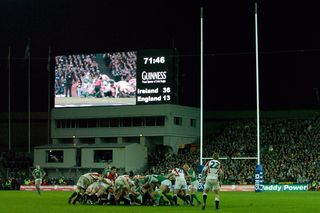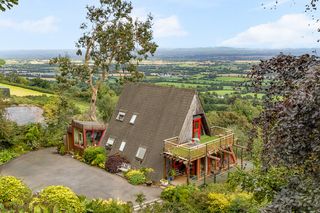Ardmore plots sale as rival studios step into the limelight
The proposed sale of the film studios at Ardmore comes as Troy Studios in Limerick begins its own hard-sell offensive, pushing Ireland's improved tax incentives for the film industry
Paul McGuinness, one of the bigger shareholders at Ardmore Studios in Wicklow, where Francis Ford Coppola shot his first feature film Picture: Collins
More than 800 people piled into Troy Studios in Limerick last week for a rare glimpse behind the scenes of the film industry. Among those promoting the new facility on the open day was Siun Ni Raghallaigh, who owns a 25pc stake in the new studios along with accountant Ossie Kilkenny.
She told local newspaper the Limerick Leader that Troy was now in "selling mode". A new website was launched to promote the city as a destination to the industry. The Castletroy facility has already partnered with Pinewood Studios, the global industry player most closely associated with the James Bond movies, and is expected to land some major productions in the coming years.
As Ni Raghallaigh was promoting the new venture, she was aware that significant changes were coming at her day job.
Ni Raghallaigh is chief executive of Ardmore Studios, which on Tuesday announced that it was putting itself up for sale. The majority shareholders in Ardmore Studios, Ossie Kilkenny and former U2 manager Paul McGuinness, along with Enterprise Ireland, decided that after 30 years it was time to move on from the studios.
New and improved Section 481 tax breaks for the sector designed to lure Hollywood blockbusters mean that exceptions for the industry are high. And under Ni Raghallaigh's management, Ardmore has delivered a strong performances in recent years.
New competition is also coming in the Irish studio market, as McGuinness knows all too well. Earlier, this year it emerged that McGuinness was less than pleased with the arrival of Troy on the scene and the involvement of Kilkenny and Ni Raghallaigh in the rival operation. McGuinness sought legal advice.
Sources said that while this may have been a difficult situation, McGuinness and Kilkenny would have been natural sellers of the business for some time. However, until recently Ardmore's financial performance meant that this was not a possibility. In 2012, the studio came near to closure when business dried up.
This is despite its long association with the international film industry. In 1963, Francis Ford Coppola shot his first film - the thriller Dementia 13 - in the Wicklow studios for a budget of £30,000. Disney's King Arthur was shot there in 2003, boasting a €100m budget and stars such as Keira Knightley and Orlando Bloom. And in the Noughties, it saw big budget dramas such as The Tudors and Camelot.
But the recession hit Ardmore hard - not helped by the success of Ballyhenry Studios in Ashford, Co Wicklow, which won a lucrative contract in 2012 for the big budget series The Vikings, which was produced by Morgan O'Sullivan for MGM.
Ardmore fought back and went on to win the hit TV series Penny Dreadful. Productions currently on site include The Professor and The Madman, and Into the Badlands.
The company said last week that a "healthy number of potential productions are in the pipeline for the coming months and year ahead". Most recent profits of €1.6m suggest a purchase price of around €15m, a multiple of close to 10 times Ebitda (the financial performance indicator) . The process is being handled by IBI Corporate Finance.
An obvious buyer would be Pinewood, which may see the benefits of having multiple locations in Ireland. It has in the past signalled its intention to expand.
A spokesman had no comment when contacted last week.
While the future looks bright for the Irish film sector, competition will only intensify. There are plans to expand the studios in Ashford, while James Morris of Windmill Lane Studio is spearheading an ambitious plan for new studios in Dublin.
For Ardmore, as for any good movie, timing is everything.
Join the Irish Independent WhatsApp channel
Stay up to date with all the latest news














